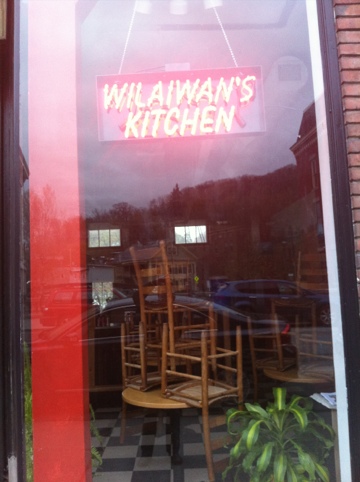For this week’s Bridge, I was fortunate to speak with Mimi Arnstein about her recent trip to Cuba to attend Third International Agroecology Conference, sponsored by the National Association of Small Farmers, a Cuban farming organization, and La Via Campesina, an international peasant movement. There wasn’t room in the paper to run all the great stories she shared with me, so here’s more:
Arnstein visited over 20 farms in Cuba, meeting farmers whose access to the world beyond the island is incredibly limited, including this tobacco farmer in Pinar del Rio, Cuba:
 “The people of Cuba possess much warmth, and are very interested about the world outside,” Arnstein wrote in personal correspondence. “The culture of Cuba is a unique mix – poor in their economy put very rich in much more: community, connection, beauty, open minds, history and pride.”
“The people of Cuba possess much warmth, and are very interested about the world outside,” Arnstein wrote in personal correspondence. “The culture of Cuba is a unique mix – poor in their economy put very rich in much more: community, connection, beauty, open minds, history and pride.”
In our interview, Arnstein noted how the people of Cuba worked around their situation to provide for themselves: “Time and again we’d see these adverse conditions — rocky, sandy soil — and very little supplies because of the economy, yet people were building something out of nothing using anything that they had — stones, concrete — in order to be able to create raised beds in the city,” she said. “Then they would put in their compost, put in their vermiculture, and start growing. Necessity is driving creative productivity.”
On farms, she noted how common intercropping is. Here, plantains and lettuce are growing together:
 The shade of the larger plants provides great ground cover for the shorter plants, she noted, and has “beautiful benefits for the soil.” When asked how her visit to Cuba might influence her farming at Wellspring this upcoming season, Arnstein said, “I want to mimic some of the farming systems I saw in Cuba, and take more of a whole system approach. I will definitely think more closely about intercropping and permaculture.”
The shade of the larger plants provides great ground cover for the shorter plants, she noted, and has “beautiful benefits for the soil.” When asked how her visit to Cuba might influence her farming at Wellspring this upcoming season, Arnstein said, “I want to mimic some of the farming systems I saw in Cuba, and take more of a whole system approach. I will definitely think more closely about intercropping and permaculture.”
I was struck by two comments Arnstein made on topics that are near and dear to my heart: Compost and cooperatives.
Here’s a solid waste system I would love to see in Vermont: “In a number of instances, in particular in the urban areas,” Arnstein said, “the community brought all of their organic waste — grass, leaves, food scraps — to the urban farms in order for them to make compost out of that organic matter.”
A strong cooperative structure supports Cuban farmers’ efforts, Arnstein noted: “Of course, the economic structure is so different in Cuba, but most farmers work with a cooperative that helps farmers get access to credit and supplies; distributes the product; and provides payment to the growers. The first place that food gets provided to is schools and hospitals, and they call this “social consumption.” The idea is that the first place that is provided for is the common good. So the food grown in a community is going to that school, that hospital, and the co-op is distributing it. Once that contract is met, whatever surplus farmers grow, they can sell. But first and foremost they have to provide for the common good.”
In terms of connecting with Cubans, Arnstein says, “I asked what is the best thing we can do is. ‘Visit,’ the people say. ‘Come, speak with the people and share.'” She described her visit as incredibly powerful. “The greatest act of connection,” she says, “was simply to have a conversation with somebody else.”
 Here is Thompson behind the counter, which is laden with the raw, whole-foods sweet treats she creates under her other business name, Amai Bijoux:
Here is Thompson behind the counter, which is laden with the raw, whole-foods sweet treats she creates under her other business name, Amai Bijoux: Learn more about Thompson, Tulsi’s lunch and grab-and-go offerings, and the restaurant’s semi-controversial equipment addition in this week’s Montpelier Bridge.
Learn more about Thompson, Tulsi’s lunch and grab-and-go offerings, and the restaurant’s semi-controversial equipment addition in this week’s Montpelier Bridge.


